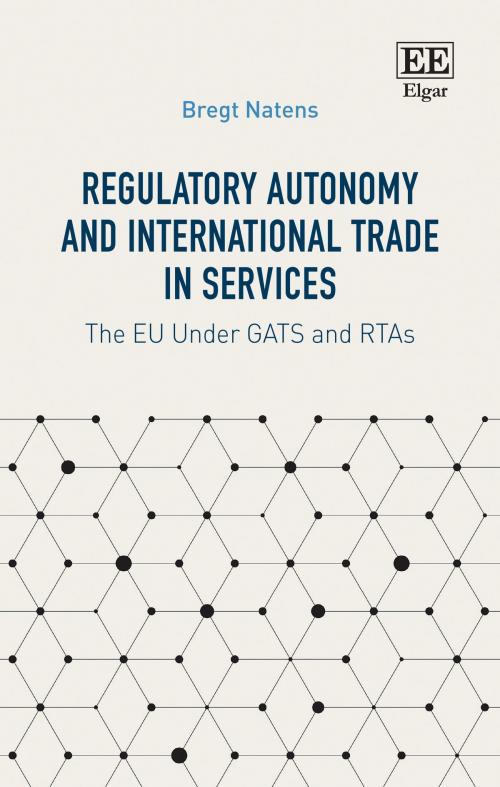Regulatory Autonomy and International Trade in Services
The EU Under GATS and RTAs
Nonfiction, Reference & Language, Law, Commercial, Business & Finance| Author: | Bregt Natens | ISBN: | 9781785364310 |
| Publisher: | Edward Elgar Publishing | Publication: | July 29, 2016 |
| Imprint: | Language: | English |
| Author: | Bregt Natens |
| ISBN: | 9781785364310 |
| Publisher: | Edward Elgar Publishing |
| Publication: | July 29, 2016 |
| Imprint: | |
| Language: | English |
This book considers how the interplay between multilateral and preferential liberalisation of trade in services increasingly raises concerns, both from the perspective of the beneficiaries of such liberalisation (whose rights are uncertain) and that of regulators (whose regulatory autonomy is constrained). The author shows how these concerns lead to vast underutilisation of, and strong prejudices against, the benefits of services liberalisation. The book meticulously analyses and compares the EU's obligations under the GATS and the services chapters of several RTAs to finally assess the merits of the raised concerns.
This book considers how the interplay between multilateral and preferential liberalisation of trade in services increasingly raises concerns, both from the perspective of the beneficiaries of such liberalisation (whose rights are uncertain) and that of regulators (whose regulatory autonomy is constrained). The author shows how these concerns lead to vast underutilisation of, and strong prejudices against, the benefits of services liberalisation. The book meticulously analyses and compares the EU's obligations under the GATS and the services chapters of several RTAs to finally assess the merits of the raised concerns.















